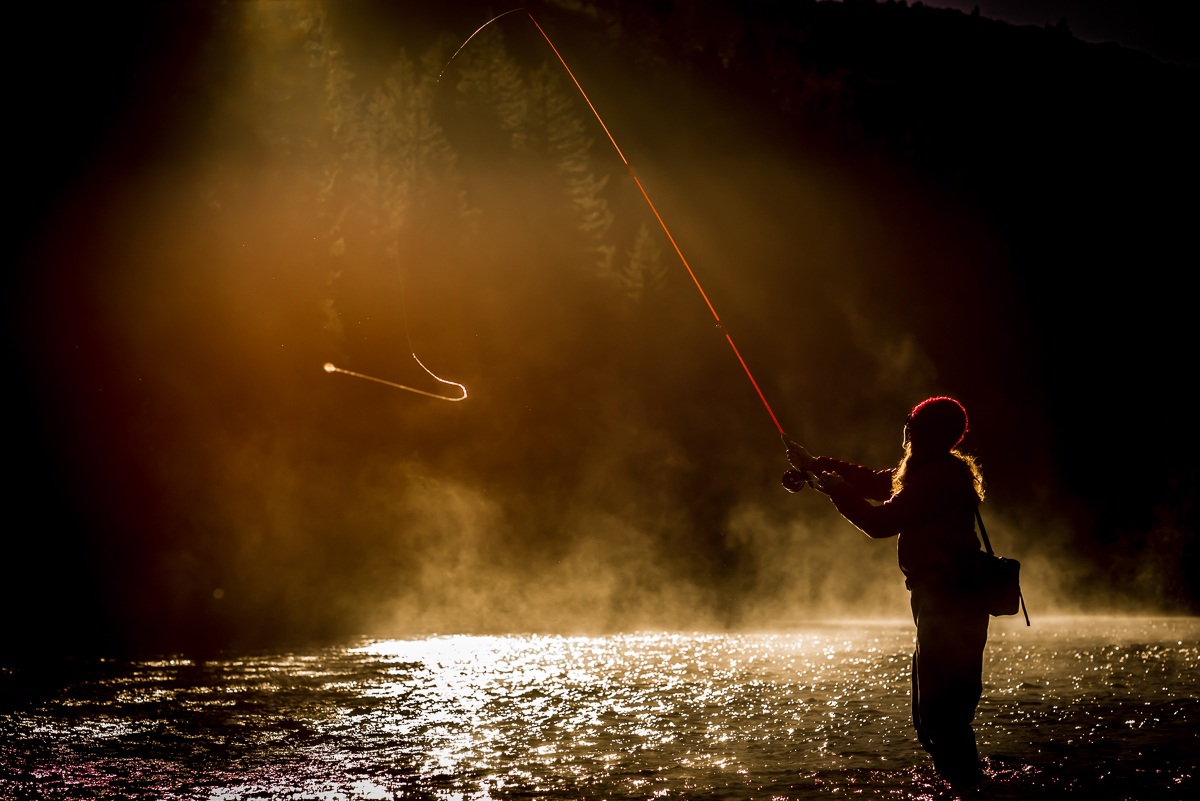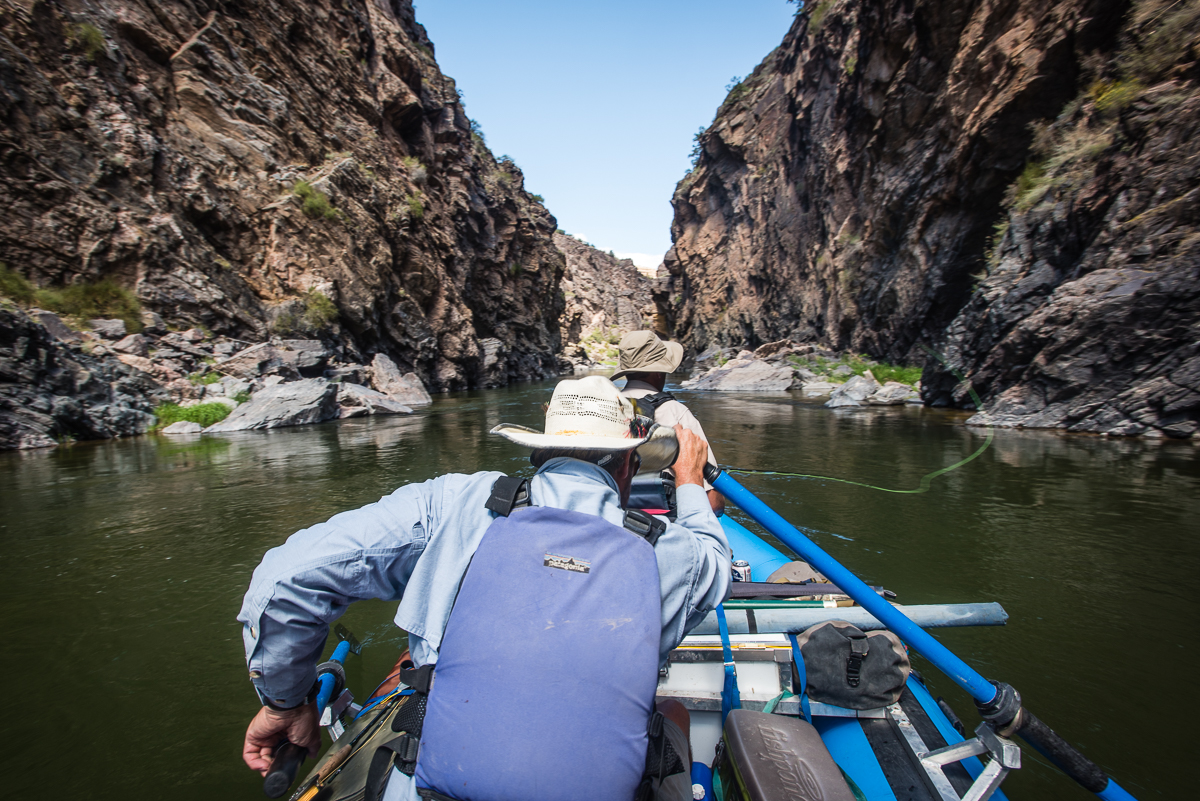House passes major federal fisheries management reauthorization bill with provisions of the Modern Fish Act, which would help recognize the value of recreational fishing and update data collection methods
Today, the U.S. House of Representatives passed H.R. 200, a bipartisan bill that includes the Modernizing Recreational Fisheries Management Act of 2017 (Modern Fish Act). This historic vote marks the first time the priorities of the recreational fishing sector are included in the reauthorization of our nation’s primary marine fisheries law, the Magnuson-Stevens Fishery Conservation and Management Act.
The provisions of the Modern Fish Act (H.R. 2023) were included in H.R. 200 by the House Committee on Natural Resources on December 13, 2017. H.R. 200 is sponsored by Representative Don Young (R-Alaska) and cosponsored by Reps. Garret Graves (R-La.); Brian Babin (R-Texas); Clay Higgins (R-La.); Gene Green (D-Texas); Robert Wittman (R-Va.); Lee Zeldin (R-N.Y.); Glenn Grothman (R-Wis.); Steve King (R-Iowa); Marc Veasey (D-Texas); Jeff Duncan (R-S.C.), and Austin Scott (R-Ga.).
“Marine recreational fishing is not a partisan issue, which was illustrated by the support H.R. 200 received from both parties today in the House,” said Jeff Angers, president of the Center for Sportfishing Policy. “We owe great thanks to Chairman Rob Bishop, Congressmen Don Young, Garret Graves, Gene Green and Marc Veasey for working together to properly recognize recreational fishing within the Magnuson-Stevens Act. These bipartisan leaders have made the difference for anglers from coast to coast.”
In 2014, the priorities of the recreational fishing and boating community were identified and presented to federal policy makers by the Commission on Saltwater Recreational Fisheries Management in a report “A Vision for Managing America’s Saltwater Recreational Fisheries.” This group is also referred to as the Morris-Deal Commission, named for co-chairs Johnny Morris, founder and CEO of Bass Pro Shops, and Scott Deal, president of Maverick Boat Group.
Many of the recommendations of the Morris-Deal Commission are addressed by the Modern Fish Act and included in H.R. 200. This legislation addresses many of the challenges faced by recreational anglers, including allowing alternative management tools for recreational fishing, reexamining fisheries allocations and improving recreational data collection. The bill aims to benefit fishing access and conservation by incorporating modern management approaches, science and technology to guide decision-making.
“The recreational fishing industry is grateful that H.R. 200, which includes the provisions of the Modern Fish Act, has now passed the U.S. House of Representatives,” said Glenn Hughes, president of the American Sportfishing Association. “The Modern Fish Act represents the collective priorities of the recreational fishing community for improving federal marine fisheries management. There are 11 million saltwater anglers in the U.S. who have a $63 billion economic impact annually and generate 440,000 jobs. This legislation will help ensure that the economic, conservation and social values of saltwater recreational fishing will continue well into the future.”
“We applaud the U.S. House of Representatives for passing commonsense legislation modernizing the federal fisheries management system, which will provide America’s recreational anglers and boaters reasonable and responsible access to public marine resources,” said Thom Dammrich, president of the National Marine Manufacturers Association. “The recreational boating industry calls on the U.S. Senate to pick up the baton, and immediately take up and pass S.1520, the Modernizing Recreational Fisheries Management Act of 2017 (Modern Fish Act). Millions of Americans are counting on it.”
“We are grateful to our champions from both sides of the aisle in the House for recognizing the needs of recreational anglers and advancing this important fisheries management reform,” said Patrick Murray, president of Coastal Conservation Association. “This is truly a watershed moment for anglers in our never-ending quest to ensure the health and conservation of our marine resources and anglers’ access to them.”
“We thank the House Leadership, Congressman Young and the leaders of the House Congressional Sportsmen’s Caucus for their leadership in finding bipartisan solutions to move the bill forward,” said Jeff Crane, president of the Congressional Sportsmen’s Foundation. “The provisions of the Modern Fish Act contained in H.R. 200 are a top priority for saltwater anglers across the United States and charts a clear course for effective recreational fisheries management while ensuring abundant, sustainable fisheries for future generations.”
“We are on our way to pragmatic Magnuson-Stevens Act reform that will allow better access to rebuilt fish stocks while ensuring long-term sustainability,” said Jim Donofrio, president of the Recreational Fishing Alliance.
“Passing these provisions of the Modern Fish Act means taking the next important step in recognizing the cultural value of recreational fishing and conservation contributions of American anglers,” said Whit Fosburgh, president and CEO of Theodore Roosevelt Conservation Partnership. “We will continue to work with our sportfishing partners to engage with senators and see to it that the Modern Fish Act becomes law—it is critical if we hope to see saltwater anglers benefit from the advances in fisheries science, data collection, and management at the heart of this important legislation.”
Following today’s vote, the coalition encourages the Senate to quickly pass S. 1520. Marine recreational anglers and boaters are eager to see these landmark reforms signed into law.









Big win for recreation fisherman!
Now pass it in the senate!
I’ve begun reading about this issue (embarrassing late however) and find it hard to see how it’s an improvement. This bill seems like it increases recreational anglers status in relation to commercial interests but guts conservation. How DOESNT this bill make it easier to harvest fish until they are nearly wiped out?